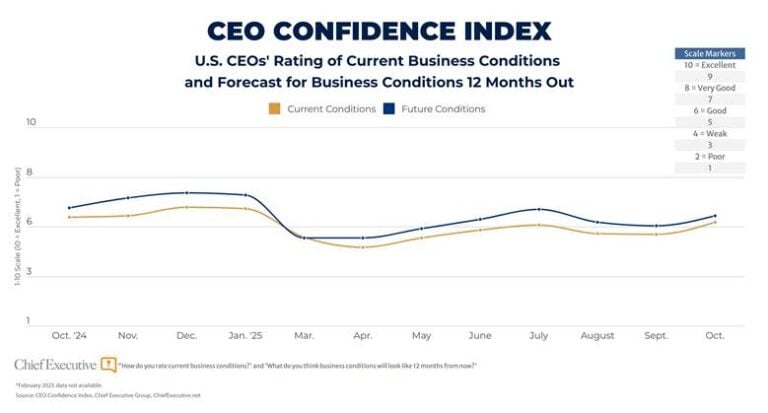

With news yesterday that the Justice Department has filed suit against AT&T to block the $85 billion-plus merger deal between the telecom carrier and Time Warner, Inc, AT&T CEO and 2016 CEO of the Year Randall Stephenson and Time Warner CEO Jeff Bewkes seem more than ready to dig in and fight the government’s charges.
The DoJ is concerned that the merger would price out rival TV carriers, and wants AT&T to sell either DirecTV or Time Warner’s Turner Broadcasting if it wishes to win antitrust approval. But the two CEOs are prepared to take the government’s challenge head-on.
“Randall Stephenson and Jeff Bewkes are so prepared that they are ready to walk into court in 10 minutes, and the government is not ready,” senior associate dean for leadership studies at the Yale School of Management Jeffrey Sonnenfeld told Chief Executive. “The government is going to go for delays, and that’s not going to make the government’s case look stronger.”
“These are two of the most visionary, low-ego CEOs out there. They are refreshingly un-nostalgic.” – Jeffrey Sonneneld
Sonnenfeld believes the government hasn’t fully considered the implications of the case, considering its past clearance of the similar Comcast/NBC merger deal that created NBC Universal in 2011, or the potential impact it could have on the pending Sinclair Broadcast Group/Tribune Media acquisition deal.
“There is plenty that the government is not prepared to give us guidance on, but on the other side, Bewkes and Stephenson are so prepared,” Sonnenfeld told Chief Executive. “Yesterday, Randall Stephenson sounded like Jimmy Stewart in Mr. Smith Goes to Washington in terms of the strong, articulate virtue that he brought out defending the deal.”
Stephenson was clear in stating his belief that the lawsuit is a major departure from antitrust precedent, and that the merger will benefit consumers.
“Fortunately, the Department of Justice doesn’t have the final say in this matter,” Stephenson said in a statement. “Rather, it bears the burden of proving to the U.S. District Court that the transaction violates the law. We are confident that the Court will reject the government’s claims and permit this merger under longstanding legal precedent.”
The work is far from over for Bewkes and Stephenson, however, as they must keep on top of the court of public opinion in coming weeks by explaining how the merger would benefit consumers. While the two corporations may appear to have the legal upper hand, they need to clearly let the public know why they’re in the right.
“These are two of the most visionary, low-ego CEOs out there. They are refreshingly un-nostalgic, not dewy-eyed about being able to see major changes as strategic visionaries,” Sonnenfeld says. “They can see what has to be done, so this is really important in terms of the culmination of their careers. This is bringing to fruition a change they’ve seen happening with changing technology that’s very different from 1930s regulatory legislation.”




0

1:00 - 5:00 pm
Over 70% of Executives Surveyed Agree: Many Strategic Planning Efforts Lack Systematic Approach Tips for Enhancing Your Strategic Planning Process
Executives expressed frustration with their current strategic planning process. Issues include:
Steve Rutan and Denise Harrison have put together an afternoon workshop that will provide the tools you need to address these concerns. They have worked with hundreds of executives to develop a systematic approach that will enable your team to make better decisions during strategic planning. Steve and Denise will walk you through exercises for prioritizing your lists and steps that will reset and reinvigorate your process. This will be a hands-on workshop that will enable you to think about your business as you use the tools that are being presented. If you are ready for a Strategic Planning tune-up, select this workshop in your registration form. The additional fee of $695 will be added to your total.

2:00 - 5:00 pm
Female leaders face the same issues all leaders do, but they often face additional challenges too. In this peer session, we will facilitate a discussion of best practices and how to overcome common barriers to help women leaders be more effective within and outside their organizations.
Limited space available.

10:30 - 5:00 pm
General’s Retreat at Hermitage Golf Course
Sponsored by UBS
General’s Retreat, built in 1986 with architect Gary Roger Baird, has been voted the “Best Golf Course in Nashville” and is a “must play” when visiting the Nashville, Tennessee area. With the beautiful setting along the Cumberland River, golfers of all capabilities will thoroughly enjoy the golf, scenery and hospitality.
The golf outing fee includes transportation to and from the hotel, greens/cart fees, use of practice facilities, and boxed lunch. The bus will leave the hotel at 10:30 am for a noon shotgun start and return to the hotel after the cocktail reception following the completion of the round.